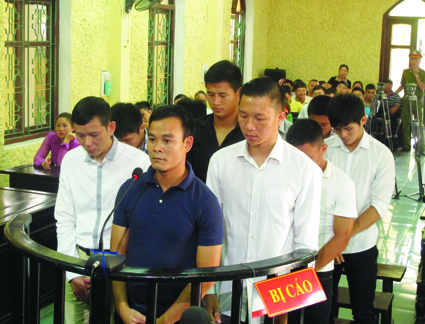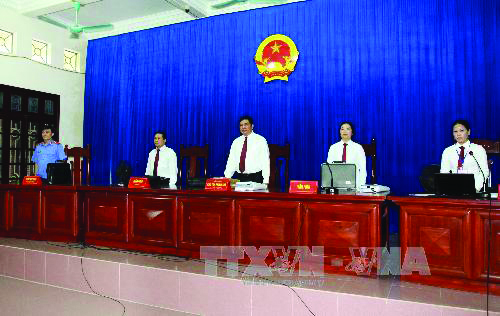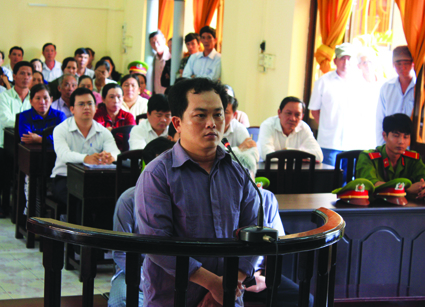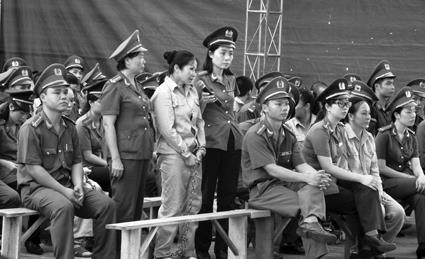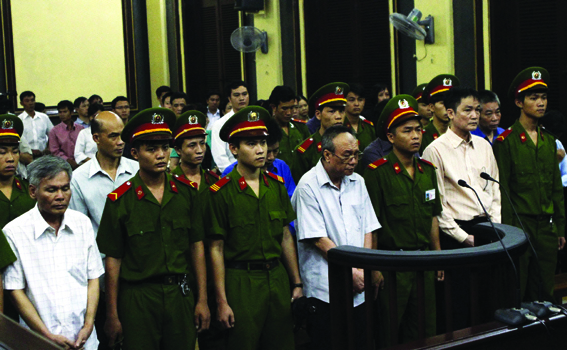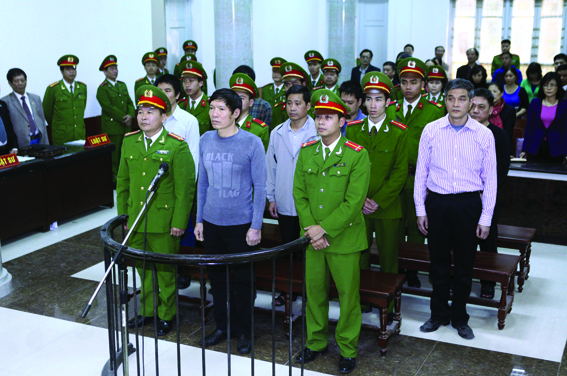Tran Dinh Hai, LL. M
Hanoi Procuratorate University
Why is decriminalization necessary?
Changing socio-economic conditions make it extremely urgent to justly judge the nature of a law-breaking act as dangerous or no longer dangerous to the society, thereby determining whether or not it is necessary to impose penal punishment, which is the heaviest and severest type of punishment, against the committer of such act. Penal policies must stem from the assessment of the need for, and necessity of, the application of the penal law, among many counter-crime measures, based on the perception that crimes and law-breaking acts are all dangerous to the society but they differ in degree of danger. That nature allows us to consider examining the penal liability or applying another coercive or correctional measure, whichever is more effective, against the violator. Only when such consideration is made, would the criminalization and decriminalization make sense. “It is wrong to regard the penal law as the decisive factor in crime prevention and combat because it might mislead or play down the role of preventive activities the core of which is the use of integrated economic, social, organizational, management, educational and persuasive measures”[1]. Thus, decriminalization is an issue that needs special research in the elaboration, revision and codification of the penal law.
Theoretically, decriminalization can be understood as the exclusion of an act, which was previously criminalized from the current penal law and abolition of penal liability for committing such act.
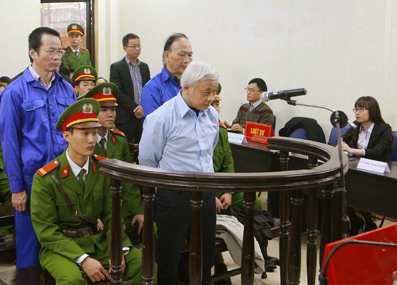 |
Defendant Nguyen Duc Kien and his accomplices at the appellate hearing for their crimes of appropriating property through swindling and tax evasion__Photo: Doan Tan/VNA |
The current Penal Code (the Code) categorizes crimes based on their danger to the society. The development of economic, political and social conditions results in changes in the danger of different criminal acts. When the danger of a criminal act changes, the application of punishment for such act should change accordingly. There are acts that were formerly criminalized but are now much less dangerous and, therefore, should be regarded as just law-breaking acts which are subject to penalties less severe than penal punishment. There are also acts that were formerly criminalized but now have become no danger to the society because they are merely immoral and no longer subject to any legal penalty. Those types of acts should be excluded from the penal law. For instance, in the history of penal legislation, due to changes in social relations, Vietnamese lawmakers have decriminalized a number of acts, such as illegally producing or trading in liquors and cigarettes (the 1985 Penal Code), and illegal use of narcotics (the 1999 Penal Code).
Decriminalizing an act requires consideration of the following factors:
l Law: The decriminalization of such act, which was previously criminalized by the penal law but can now be made less harmful by the State and society by using less severe measures prescribed by other laws in the national legal system, does not contravene such laws as well as the internationally recognized legal principles and norms.
l Criminology: Criminal statistics and sociological surveys show that the application of penal punishments against such act in reality is occasional, if at all.
l Psychology and morality: Such act has not been morally condemned and strongly criticized by the public.
l Culture: The decriminalization of such act is suitable to the people’s intellectual standards and legal knowledge and acceptable to the legal awareness of a majority of society members.
l Economy, society, history and tradition: The decriminalization of such act follows the objective development laws of the society’s physical and spiritual lives and is aligned with scientific, technical and technological advances and in harmony with legal traditions of the nation.
Abolition of some crimes in the Code
From the above analysis, we recommend the abolition of some crimes in the Code as follows:
Making false advertisements (Article 168)
In our socialist-oriented market economy, the State always encourages all economic sectors to conduct economic activities for their own prosperity and the country’s development. Obviously, advertising is a highly effective method of trade promotion to market and sell products and services and increase revenues for business entities. Making false advertisements is the provision of misinformation on the quality, content or value of one’s products or services to customers and users. If the act is only the “flattery” of the quality or value of a product or service to win the trust of customers to buy that product or service, it is not so dangerous to the society to be examined for penal liability. This crime’s criminalizing sign of “causing serious consequences” makes it very difficult to identify in reality such crime through its consequences and to issue implementation guidelines. If a false advertisement is made through introducing counterfeit or inferior-quality goods or goods in insufficient quantity or of wrong categories for the purpose of appropriating other persons’ property, the directly harmed social relation is the ownership one and such act would therefore constitute the crime of “appropriating property through swindling” under Article 139, or might be examined for penal liability as another crime related to production and trade of counterfeit goods. In other cases, if a customer accepts to buy a product or use a service and later finds out that the quality or value is not as good as described in the advertisement, that should be regarded as a risk resulted from a willing-based sale and purchase transaction because the customer has used the goods or service. Additionally, in case the making of false advertisements in the mass media causes consequences to and adversely impacts the society, providers of information services should be held responsible in accordance with the Law on Press, Law on Handling of Administrative Violations, etc. As we can see, all those acts dangerous to the society related to the advertising of products and services are subject to penal liability examination as other crimes, while the act of flattering the real value of a product for the purpose of increasing its sales volume, if causing consequences, should only be handled with deterrent measures other than penal punishment. Particularly for an enterprise, administrative handling followed by loss of its reputation in the market is already a severe punishment. The abolition of this crime from the Code is necessary.
Counterfeiting stamps or tickets, trading in counterfeit stamps or tickets (Article 164)
This is a crime prescribed since 1985 in the first Penal Code in the context of a centrally planned and subsidized economy where stamps, tickets and coupons were of great value and the circulation of their counterfeits might have had serious impacts on people’s life, supply of products and state management. However, given the current market economy and free trade, the production and trading activities of all economic sectors are promoted and such articles are no longer so valuable. As a result, making and trading in counterfeit stamps or tickets are no longer so dangerous to the society to be examined for penal liability and administrative penalties would be severe enough for them. If these acts are intended for appropriation of other persons’ property and material damage can be quantified, they should be examined for penal liability as appropriating property through swindling under Article 139. Therefore, Article 164 is no longer necessary and significant for crime prevention and combat.
Deliberately acting against the State’s regulations on economic management, causing serious consequences (Article 165)
In its recent review report on the implementation of the Code, the Ministry of Justice finds it necessary to abolish this crime as it has become irrelevant to the socio-economic development conditions and international integration. According to Tran Van Do, the penal law not only handles crimes and criminals but also creates a safe legal ground for socio-economic development. A crime must be a specific act dangerous to the society, not a general definition applicable to any act in reality[1].
In the present context, this crime no longer meets the requirements of public and transparent application because its composition is unclear with an ambiguous borderline between guilty and not guilty. In fact, this crime has become a “vessel” to carry any act which cannot be otherwise criminalized.
Moreover, opinions remain divergent on the concept of “economic management” in this Article: Can administrative activities to serve commercial operation of a unit, compliance with administrative regulations in economic activities, implementation of superior levels’ instructions, abuse of one’s position and authority while performing official duty, local government’s regulations, etc., be regarded as regulations on economic management?
We suggest Article 165 be abolished to keep up with the objective development of the society and market economy, and to create a safe and open legal corridor for investors.
Assuming a false position or rank (Article 265)
Assuming a false position or rank is an act of a person declaring himself as the holder of a position or rank that he does not hold for the purpose of committing an illegal act. A person may assume a false position or rank by using different tricks such as using a fake ID, wearing a uniform, badge or insignia that looks like holder of the position or rank which he is intended to assume. In fact, assuming a false position or rank aims to win another person’s trust and then appropriate that person’s property. If this is the case, the directly harmed social relation is the ownership one and the committer of the act will bear penal liability for appropriating property through swindling under Article 139.
If a person assumes a false position or rank to fabricate, propagate or undermine people’s trust in the State and people’s administration in order to subvert the people’s administration, he may be charged with crimes against national security (conducting propaganda against the State or carrying out activities aimed at subverting the people’s administration).
If a person assumes the position or rank of another person in order to harm the latter’s honor and dignity, he may be examined for penal liability for slander. In this case, assuming a false position or rank is only a trick to commit a crime and it should be treated as an aggravating circumstance in the examination for penal liability.
In other cases where a person commits this act just for showing himself off, his act does not constitute a crime and an administrative penalty is serious enough to deter and educate him, and it is unnecessary to criminalize this act.-

